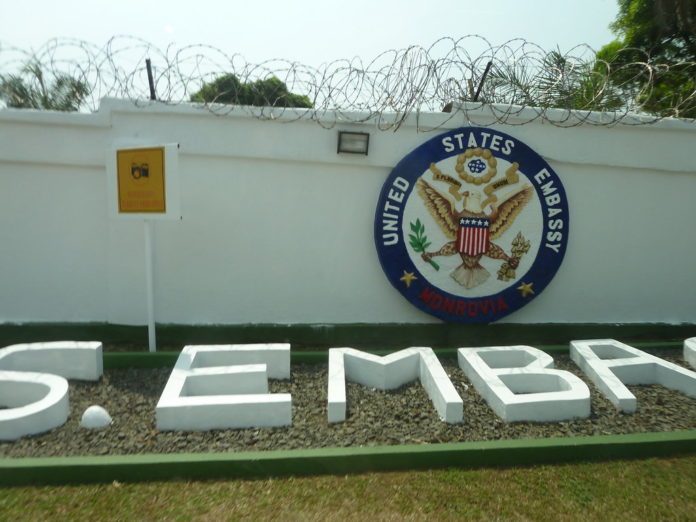In its 2021 Trafficking in Persons Report for Liberia, the United States Embassy declares that the Government of Liberia does not fully meet the minimum standards for the elimination of human trafficking—the requirement for a country to be ranked as Tier 1—but it is making efforts to do so.
It said these efforts included opening a new shelter for child trafficking victims, initiating an investigation into a high-profile labor trafficking case in cooperation with foreign governments, and allocating funding to NGOs to conduct awareness raising campaigns.
The TIP Report is the world’s most comprehensive resource of government anti-trafficking efforts and reflects the U.S. Government’s commitment to global leadership on this key human rights, law enforcement, and national security issue.
In 2020, Liberia was elevated to Tier 2. This year, however, the report downgraded Liberia to the Tier 2 Watch List.
However, the report states that the Liberian Government did not demonstrate overall increasing efforts compared to the previous reporting period, even considering the impact of the COVID-19 pandemic on its anti-trafficking capacity.
It notes that the Government identified fewer victims, initiated fewer investigations, prosecuted fewer defendants, and did not sentence any traffickers.
According to the report, law enforcement officials still lack adequate resources and understanding of human trafficking to effectively investigate and prosecute trafficking crimes. “Shelter services for victims remained insufficient, and the Government did not provide support to NGOs caring for victims.”
For these reasons, the report indicates, Liberia was downgraded to the Tier 2 Watch List. As in the past, this year’s Trafficking in Persons Report recommends a number of steps that the Government of Liberia can take to improve its ranking.
These include, but are not limited to, increasing efforts to investigate and prosecute trafficking cases, including internal trafficking cases and officials accused of complicity; training law enforcement and judicial officials on identifying, investigating, and prosecuting trafficking cases under the 2005 anti-trafficking law.
Amending the 2005 anti-trafficking law to remove the requirement of force, fraud, or coercion in child sex trafficking cases; prescribing penalties for adult trafficking that are sufficiently stringent and commensurate with the penalties for other grave crimes; and expanding victim services— particularly for victims located outside the capital, males, and victims requiring long-term care.
The US Embassy, meanwhile, commends civil society organizations for their active involvement in reporting potential trafficking cases and coordinating services for potential victims, especially the Association of Female Sociologists of Liberia, Community Watch Forum, Defense for Children International, National Concern Youth of Liberia, Orphan Relief and Rescue, Samaritan’s Purse, THINK Liberia, World Hope International, and YWCA Liberia.
Although progress on TIP must be led by the Government of Liberia in partnership with civil society, the US Embassy says it remains committed to providing appropriate support.
For example, with funding from the Department of State’s Bureau of International Narcotics and Law Enforcement Affairs (INL), it reveals that the International Development Law Organization (IDLO) has developed TIP curricula for the Liberian law enforcement and judicial sectors, including a bench book for judges, a handbook for prosecutors, and training for law enforcement officers.
The Trafficking in Persons Report is an annual report mandated by the Trafficking Victims Protection Act (TVPA), passed by the U.S. Congress in 2000.
It is compiled by the Trafficking in Persons Office of the U.S. Department of State in Washington, D.C. using information from U.S. embassies, government officials, nongovernmental and international organizations, published reports, news articles, academic studies and research trips to every region of the world.
The Embassy says the United States is committed to objectively assessing government’s efforts, including its own, to meet the TVPA’s minimum standards.
Each country is ranked on one of four tiers: Tier 1 – Countries whose governments fully meet the TVPA’s minimum standards for the elimination of trafficking. Tier 2 – Countries whose governments do not fully meet the TVPA’s minimum standards but are making significant efforts to bring themselves into compliance with those standards.
Tier 2 Watch List – Countries whose governments do not fully meet the TVPA’s minimum standards but are making significant efforts to bring themselves into compliance with those standards, and for which:
a) the estimated number of victims of severe forms of trafficking is very significant or is significantly increasing and the country is not taking proportional concrete actions;
b) there is a failure to provide evidence of increasing efforts to combat severe forms of trafficking in persons from the previous year, including increased investigations, prosecution, and convictions of trafficking crimes, increased assistance to victims, and decreasing evidence of complicity in severe forms of trafficking by government officials.
Tier 3 – Countries whose governments do not fully meet the TVPA’s minimum standards and are not making significant efforts to do so.






















